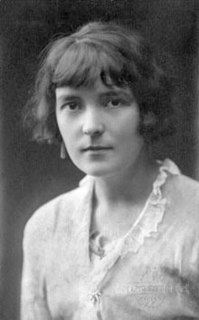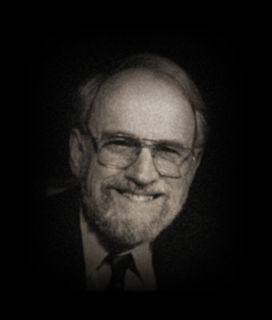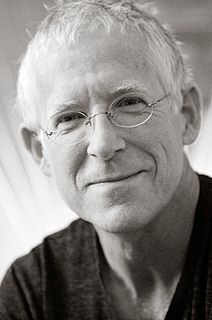A Quote by Katherine Mansfield
Once we have learned to read, meaning of words can somehow register without consciousness.
Quote Topics
Related Quotes
A definition is nothing else but an explication of the meaning of a word, by words whose meaning is already known. Hence it is evident that every word cannot be defined; for the definition must consist of words; and there could be no definition, if there were not words previously understood without definition.
When I was 12 or 13, my dad taught me a couple of different chords, and once I learned chords, I never learned to read music, but I learned tablature, like a lot of kids do, and I learned songs that had the chords I knew. It took me a long time to understand the upstroke of picking and strumming, but once I did, it all fell into place.
In reading we must become creators. Once the child has learned to read alone, and can pick up a book without illustrations, he must become a creator, imagining the setting of the story, visualizing the characters, seeing facial expressions, hearing the inflection of voices. The author and the reader "know" each other; they meet on the bridge of words.
Words don't change their shape, they change their meaning, their function...They don't have a meaning of their own any more, they refer to other words that you don't know, that you've never read or heard...you've never seen their shape, but you feel...you suspect...they correspond to...an empty space inside you...or in the universe.
The fish trap exists because of the fish. Once you've gotten the fish you can forget the trap. The rabbit snare exists because of the rabbit. Once you've gotten the rabbit, you can forget the snare. Words exist because of meaning. Once you've gotten the meaning, you can forget the words. Where can I find a man who has forgotten words so I can talk with him?
To grasp life and meaning, we assume constancy where it does not exist. We name experiences, emotions, and subjective states and assume that what is named is as enduring as its name. Human beings blessed and cursed with consciousness - especially consciousness of their own being - think in terms of names, words, symbols.
You are so accustomed to think of yourselves as bodies having consciousness that you just cannot imagine consciousness as having bodies. Once you realize that bodily existence is but a state of mind, a movement in consciousness, that the ocean of consciousness is infinite and eternal, and that, when in touch with consciousness, you are the witness only, you will be able to withdraw beyond consciousness altogether.


































